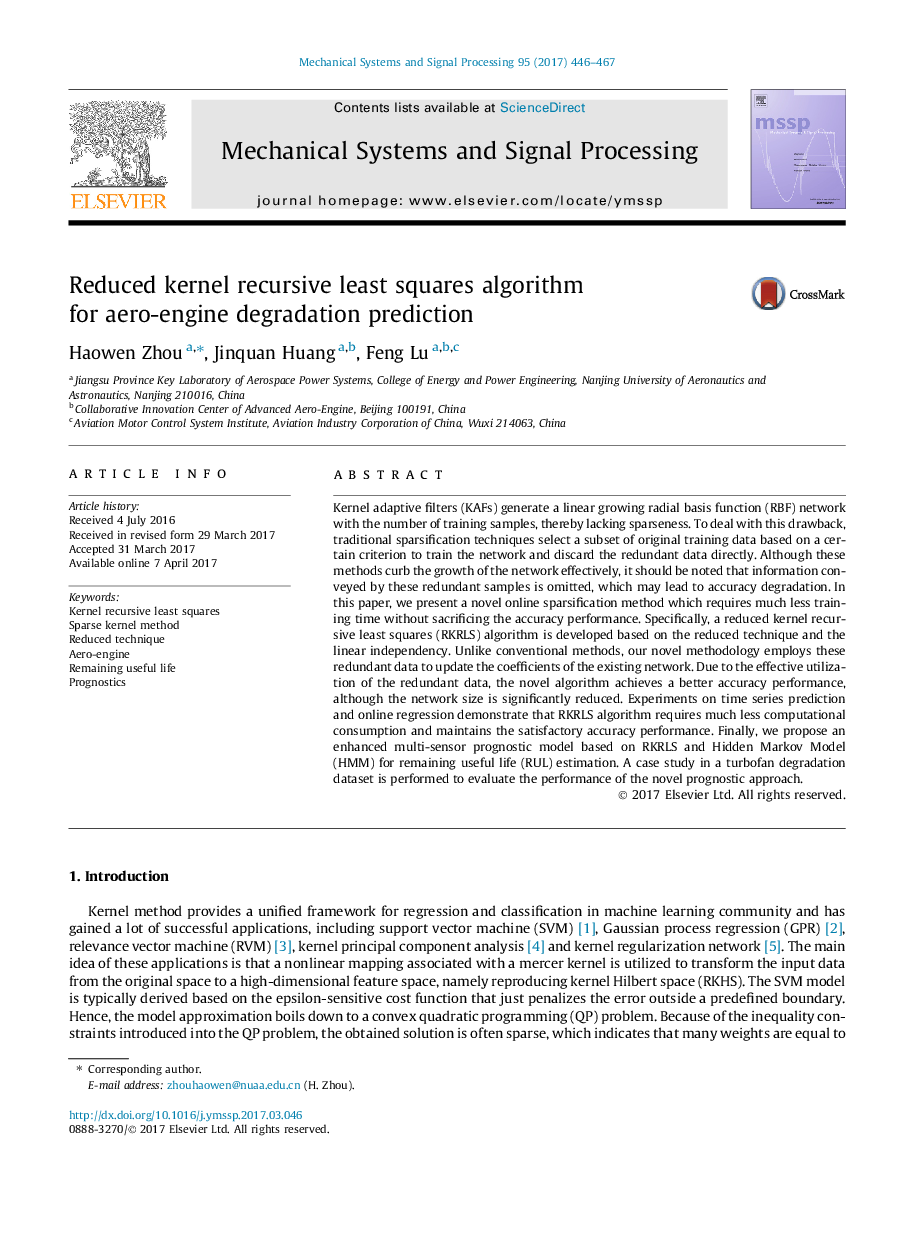| Article ID | Journal | Published Year | Pages | File Type |
|---|---|---|---|---|
| 4976820 | Mechanical Systems and Signal Processing | 2017 | 22 Pages |
Abstract
Kernel adaptive filters (KAFs) generate a linear growing radial basis function (RBF) network with the number of training samples, thereby lacking sparseness. To deal with this drawback, traditional sparsification techniques select a subset of original training data based on a certain criterion to train the network and discard the redundant data directly. Although these methods curb the growth of the network effectively, it should be noted that information conveyed by these redundant samples is omitted, which may lead to accuracy degradation. In this paper, we present a novel online sparsification method which requires much less training time without sacrificing the accuracy performance. Specifically, a reduced kernel recursive least squares (RKRLS) algorithm is developed based on the reduced technique and the linear independency. Unlike conventional methods, our novel methodology employs these redundant data to update the coefficients of the existing network. Due to the effective utilization of the redundant data, the novel algorithm achieves a better accuracy performance, although the network size is significantly reduced. Experiments on time series prediction and online regression demonstrate that RKRLS algorithm requires much less computational consumption and maintains the satisfactory accuracy performance. Finally, we propose an enhanced multi-sensor prognostic model based on RKRLS and Hidden Markov Model (HMM) for remaining useful life (RUL) estimation. A case study in a turbofan degradation dataset is performed to evaluate the performance of the novel prognostic approach.
Related Topics
Physical Sciences and Engineering
Computer Science
Signal Processing
Authors
Haowen Zhou, Jinquan Huang, Feng Lu,
